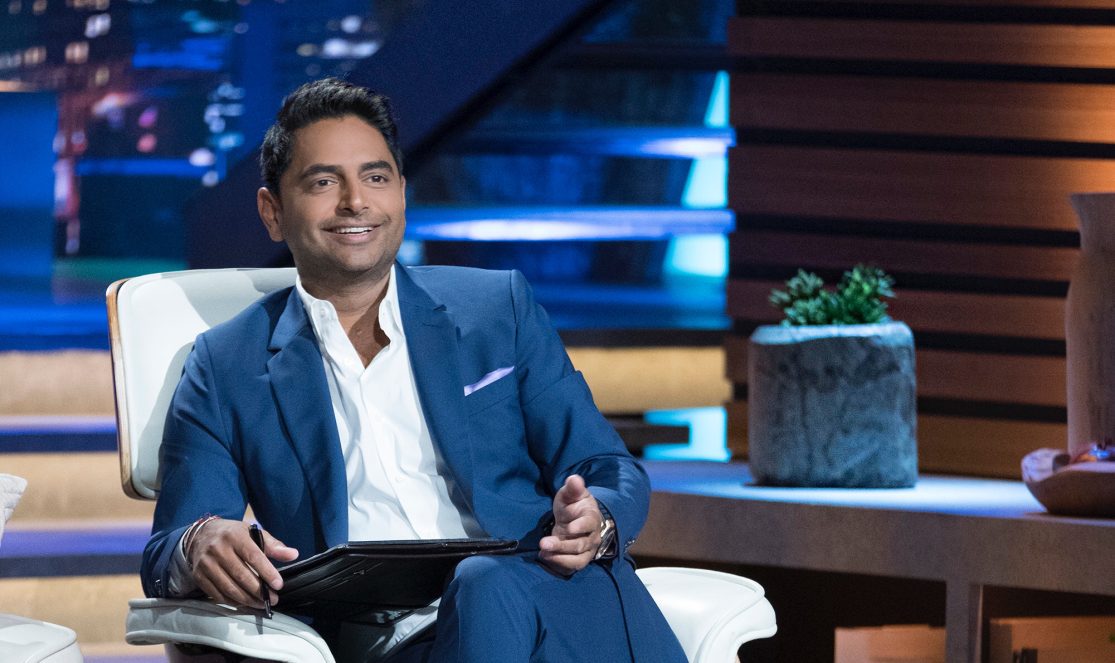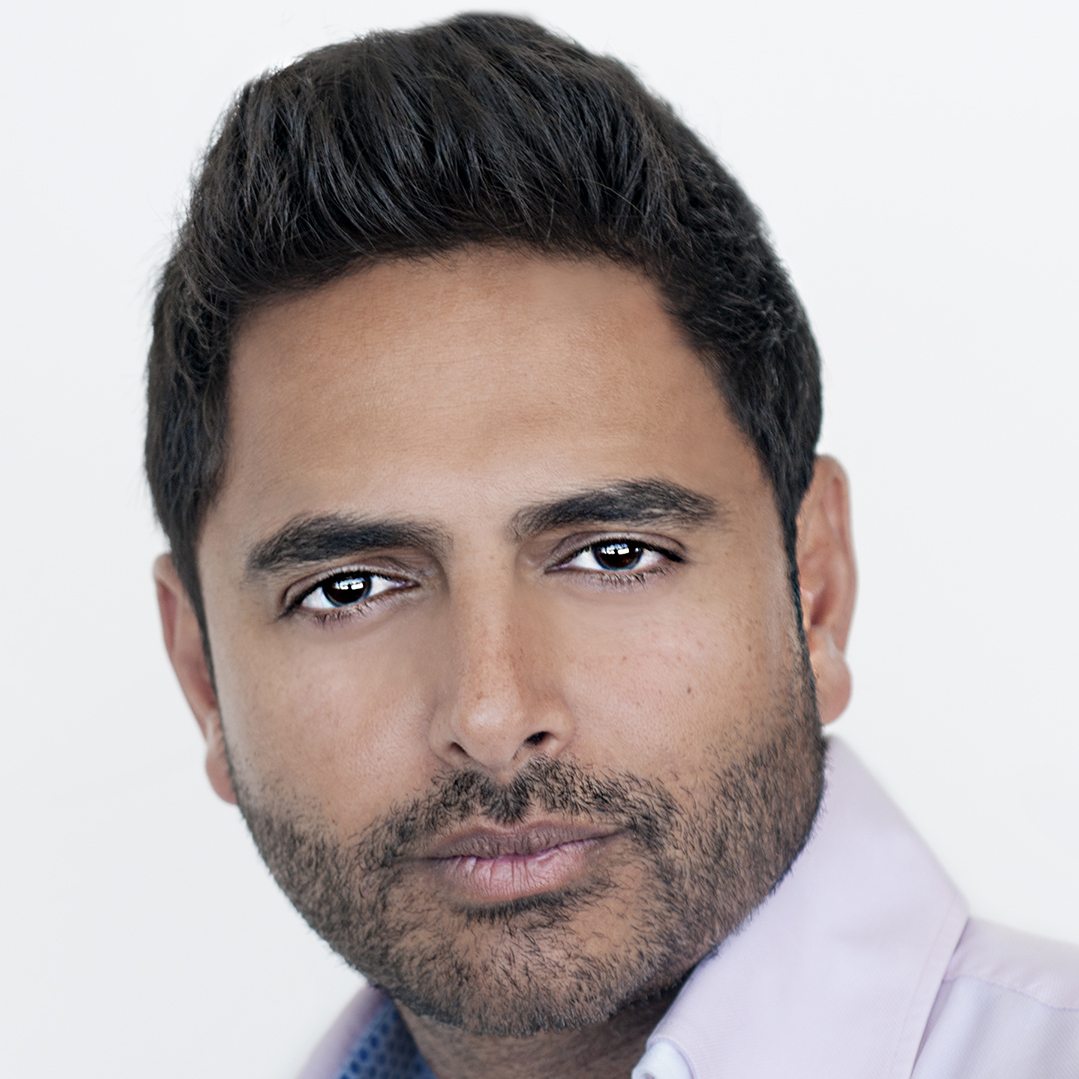The celebrities and brands Rohan Oza has worked with reads like a generation-spanning list of pop culture’s biggest names. He’s even earned the nickname “Hollywood Brandfather.”
As an early partner in Vitaminwater, he took a risk leaving corporate America for a small beverage start-up brand. He introduced rapper 50 Cent to the brand in 2004, and in what was the industry’s first celebrity equity-partnership deal, he made 50 Cent both a spokesperson for and part owner in the company. After Rohan secured another pioneering equity partnership with Jennifer Aniston for Smartwater, both brands soared to unimaginable heights and were sold to Coca-Cola in 2007 for $4.1B.
Oza has gone on to work with everyone from David Ortiz to Justin Timberlake on an array of the hottest consumer packaged goods (CPG) brands. Most recently, he added “Shark” to his title as a Recurring Shark on seasons 9, 10, and 11 of the hit ABC show, Shark Tank.
The Zambian-born entrepreneur got his start working in operations at Mars/M&M’s. After earning his MBA at the University of Michigan, he transitioned into marketing at Coca-Cola, honing his partnership skills. He was given the keys to Powerade, revitalizing that brand and using his entrepreneurial spirit to put his mark on several important Sprite campaigns before leaving for Vitaminwater.
Today, he is a co-founder and managing partner of CAVU Venture Partners, discovering the brands of tomorrow and disrupting the CPG space with “better for you” food, beverage, beauty, and personal care products. His group has invested in a range of emerging brands, from Bai, which was sold for $1.7B to DPSG, to Beyond Meat, which is worth more than $7B and had one of the most successful IPOs in 2019.

The entrepreneur has come to be known as the “Hollywood Brandfather.”
Were you into sports, media, or celebrity culture first?
I would probably say I was into sport first, then music culture as a close second. In England, I grew up on rugby, cricket, and [soccer], and Liverpool was my team. I love the passion that these teams create; it makes sports an extremely powerful connector.
I was inducted into hip-hop culture while working on the “Trust Your Instincts” campaign for Sprite. It was 1998-99, and we were working with three emerging talents: Tim Duncan, Kobe Bryant—who was fresh out of high school at the time—and Missy Elliott. At the same time Sports Illustrated put out an ad proclaiming, “rappers want to be ballers and ballers want to be rappers,” and that’s when I realized the symbiotic nature of basketball and hip-hop culture—this seamless authenticity between the two.
When did you realize that you had a special ability to seek out and develop or revive brands?
When I was at Powerade, the brand was not doing well, so we were given a lot of license to turn things around. We reenergized the brand through new packaging, product innovation, and partnering with athletes rather than trying to sponsor entire leagues. People bond with athletes and teams, not leagues. We worked with Andy Roddick, Michael Vick, and LeBron, among others. All of this new innovation led to 30 percent growth for four straight years. When you market sports the right way, amazing things can happen.
When did you feel you were successful for the first time?
I’m still waiting! … My first two really big wins that changed the trajectory of my career involved two celebrities on two separate brands: 50 Cent with Vitaminwater and Jennifer Aniston with Smartwater.
50 Cent was a co-creator in a new flavor for the brand, Formula 50. I get a lot of credit for developing the equity-ownership model, but 50 probably deserves more of the credit. He was business savvy enough to make the bet on himself. When penning the deal, instead of asking for the standard financial arrangement, he said, “Give me skin in the game.” Giving him equity and tying his success to the brand’s success changed the game—not just for us, but for all celebrity partnerships.
When we struck the 50 Cent deal, it was the first equity arrangement of its time and the first one where celebrities realized they could make more if they gave more of themselves. Inadvertently, we changed the game.
Similarly, when Jennifer became the face of Smartwater in 2005, the brand skyrocketed to new heights. She loved the product, and her brand DNA was the perfect, authentic match for the product.
How do you describe your career to others?
My business partner Brett Thomas and I co-founded CAVU Venture Partners in 2015. Our mission is to democratize healthy living for all humans. No matter who you are or where you live, people want to feel better—and that starts with what you put in and on your body. I use every single product I invest in because it’s better than what’s on the market today. I feel better about myself because of it, and at CAVU we work hard to give everyone that opportunity.
Are you surprised by where your career path has led you?
I’m blessed to be living the American dream. I was happy to get a job after graduating from the University of Michigan in a field that excited me. Big corporations can be good for getting your feet wet, meeting talented colleagues, and finding strong mentors. However, as much as big companies like to hire people with entrepreneurial spirit, they don’t typically like to let them use it. I wasn’t good at reining mine in, and I quickly realized the corporate world was not the right fit for me.
I’ve had my share of ups and downs, and I’ve even been fired a couple of times, but each time has forced me to take stock in what I do—my areas of passion and the areas in which I excel. One of my favorite tips for entrepreneurs is to follow your gut.

With Justin Timberlake and Bai.
What have you learned along the way?
I’ve learned a lot and made my fair share of mistakes. When looking at new companies, I look for three key ingredients:
- A passionate entrepreneur who I believe in (like a CEO or creator with a mission) who has created an amazing corporate culture.
- A product that is unique or different from what’s already out there.
- A purpose for that product to fill a consumer need.
For example, the founder of Bai, Ben Weiss, was passionate and smart and had created a great-tasting product. He created a product with a purpose—great taste and low calories—in an almost too good to be true way. From a partnership with Justin Timberlake to a popular Superbowl commercial and a sale to DPSG, the brand has obviously proven its success.
How do you set up companies to be successful for generations to come?
At CAVU we partner with talented entrepreneurs to build the brands of tomorrow. Millennials and Gen Z are redefining the marketplace. We’re bringing unique, better-for-you products, like the ones the Genzennials are demanding, into the mainstream, completely disrupting and redefining the massive food, beverage, beauty, and personal care industries.














































